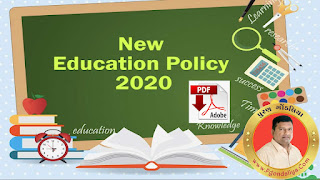The global education development agenda reflected in the Goal 4 (SDG4) of the 2030 Agenda for Sustainable Development,
adopted by India in 2015 - seeks to “ensure inclusive and equitable quality education and promote lifelong learning opportunities for all” by 2030. Such a lofty goal will require the entire education system to be reconfigured to support and foster learning, so that all of the critical targets and goals (SDGs) of the 2030 Agenda for Sustainable Development can be achieved.The world is undergoing rapid changes in the knowledge landscape. With various dramatic scientific and technological advances, such as the rise of big data, machine learning, and artificial intelligence, many unskilled jobs worldwide may be taken over by machines, while the need for a skilled workforce, particularly involving mathematics, computer science, and data science, in conjunction with multidisciplinary abilities across the sciences, social sciences, and humanities, will be increasingly in greater demand. With climate change, increasing pollution, and depleting natural resources, there will be a sizeable shift in how we meet the world’s energy, water, food, and sanitation needs, again resulting in the need for new skilled labour, particularly in biology, chemistry, physics, agriculture, climate science, and social science.
The growing emergence of epidemics and pandemics will also call for collaborative research in infectious disease management and development of vaccines and the resultant social issues heightens the need for multidisciplinary learning. There will be a growing demand for humanities and art, as India moves towards becoming a developed country as well as among the three largest economies in the world. Indeed, with the quickly changing employment landscape and global ecosystem, it is becoming increasingly critical that children not only learn, but more importantly learn how to learn. Education thus, must move towards less content, and more towards learning .
નવી રાષ્ટ્રીય શિક્ષણનીતિ 2020
ડાઉનલોડ PDF ફાઇલ
about how to think critically and solve problems, how to be creative and multidisciplinary, and how to innovate, adapt, and absorb new material in novel and changing fields. Pedagogy must evolve to make education more experiential, holistic, integrated, inquiry-driven, discovery-oriented, learner-centred, discussion-based, flexible, and, of course, enjoyable. The curriculum must include basic arts, crafts, humanities, games, sports and fitness, languages, literature, culture, and values, in addition to science and mathematics, to develop all aspects and capabilities of learners;





